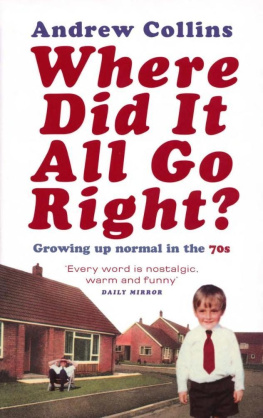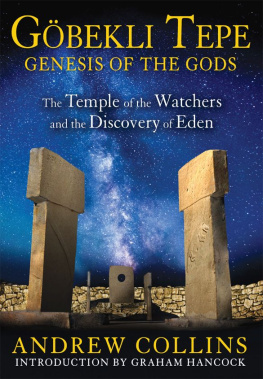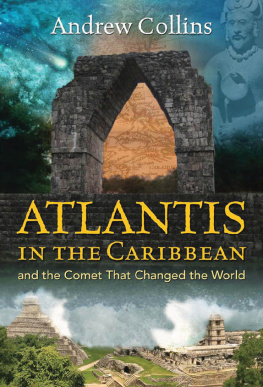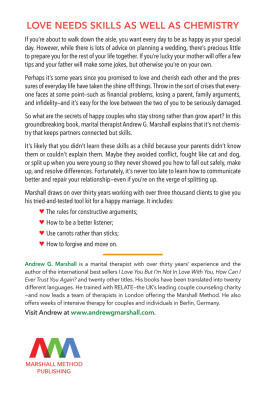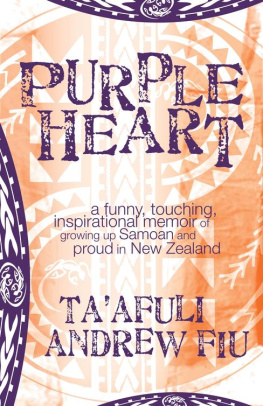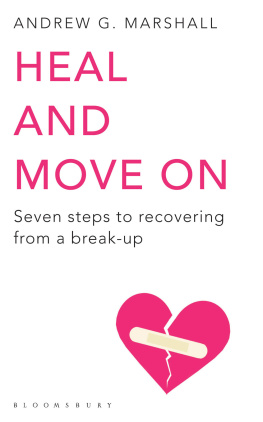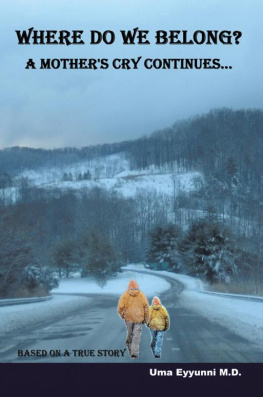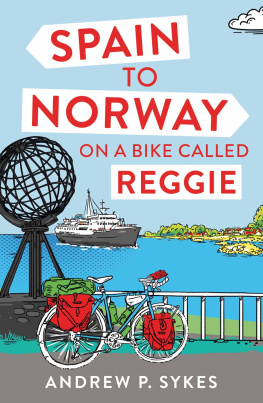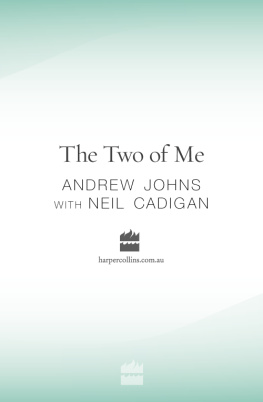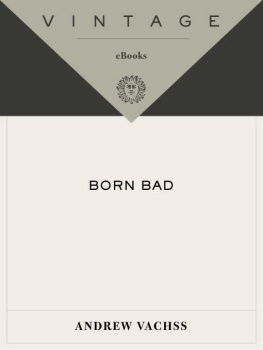contents
WHERE DID IT
ALL GO RIGHT?
Andrew Collins
To Mum, Dad, Simon and Melissa.
Its a family affair.
introduction
Ask the Family
We shipped em in all the way from
Northampton the Collins family!
Noel Edmonds, Telly Addicts (1990)
Who went from the Hotel du Lac to the Bangkok Hilton?
Come on, Ill have to hurry you
My family, the Collins family, appeared as contestants on Telly Addicts in 1990. We managed to reach the dizzy heights of the semi-finals and took home a Telly Addicts board game and four fleecy-lined Telly Addicts sweatshirts. This brush with the limelight may seem like the wrong place to start a book about being normal, but as much as anything its a sign of the times. Its more normal to have been on a TV quiz show than not. I knew someone when I was working at the NME whod been on Fifteen to One (as had his girlfriend), and I later worked under a bloke whod been on Blockbusters. My sister-in-law was close enough to Who Wants to Be a Millionaire to have recruited me as one of her phone-a-friends (they callously disqualified her for taking more than the allotted time to answer the qualifying phone question about the length of the Golden Gate Bridge, which she gallingly got right). Further, my brother was on Crimewatch (as an officer of the law, I might add), my future wife could be seen dancing to Hall & Oates Maneater on a 1982 edition of Top of the Pops, her brother was an extra on Grange Hill, and you could see my Uncle Allens head in the crowd when Jeux sans Frontires came to Northampton. (This was after hed lost his rag with some noisy Europeans in the row behind and thrown a pair of their dustbin-lid cymbals on to the field of play.)
So hold the front page Warhol was right. Tragically, the 15 minutes of fame granted by contestanthood on a TV quiz show quickly fades (even in Northampton where nothing ever happens). But let us not lump Telly Addicts in with all the other quiz shows: in those days it was special. It was about families. Most quiz or game shows want you in ones or pairs or in meritocratic school groups for things like Beat the Teacher and University Challenge. At that time only Telly Addicts and Family Fortunes traded in the nuclear unit, and you have to admire their commitment to a dying currency.
Of course there used to be the eugenic Ask the Family with Robert Robinson, open exclusively to the families of university lecturers, and only then if they had two sons. It wasnt until the Eighties, when the American show Family Feud was translated back into English, that the proletariat were invited to leave the sofa en famille and flaunt their knowledge on TV. Knowledge aptly accumulated not from reading books but from watching TV literally so in the case of Telly Addicts, where families were put on a prop sofa and given a prop remote control, to make them feel at home.
Telly Addicts moved with the times in 1994 and relaxed the rules to allow workmates and friends to join in: tantamount to a requiem for the family unit in this country. Back in 1990 though it was still a place for mums and dads and sons and daughters, and we were right there, on display in the petri dish of early evening BBC1: a happy, normal family of addicts. The point is and how unlike television as a rule this was no faade, no lie. Although Id left home by then and had my own sofa and telly in London, we were a happy, normal family.
Mum, Dad, my younger sister Melissa and I really did get on famously, and when I occasioned to visit Northampton at weekends, we really might sit on a sofa together and watch telly. (It would have been a fine thing if the show had accepted five-person teams and our brother Simon could have joined us there in front of that studio audience at Pebble Mill, but he was in Germany with the army at the time, and unable to take the day off for such frippery, despite the fall of the Berlin Wall on 9 November 1989 and the reduced likelihood of the Russians invading.)
I was 25, and wore the same white, oversized, partially laced hip hop trainers on all three editions of Telly Addicts, letting the side down below the ankle but otherwise very much a team player. In the first round we beat the Young family from Stevenage by a whisker, 18 points to 16. (Theres an atmosphere of relief, mingled with a little surprise, said Noel Edmonds at the end of the show.)
In the quarter finals, we were up against the Gawthrops (Nick, Deb, Chris and Russ, all jumpers and cardigans). Another close-run, low-scoring clash, the Hotel du Lac was the last of my three individual questions in the Spotlight Round. Id actually passed on the first: Who presents The Late Late Show? (the roguish Gay Byrne, as any addict not under the studio lights could tell you), but Id salvaged my reputation by correctly naming Dr Whos robot dog from a library shot (eas-y!): K-9.
Then
Who went from the Hotel du Lac to the Bangkok Hilton?
A pretty upmarket question for a light early evening BBC1 quiz show I trust youll agree, and I fluffed it. They had to hurry me. Dont know, I said college boy! scoring one lousy point out of a possible three, bringing the familys total for that round up to an anorexic four points. You have to bear in mind that for this decisive round the studio lights are dimmed, a clock ticks in the corner of the screen and theres no conferring. Suddenly its not like sitting at home on the sofa with Mum, Dad and Melissa any more. We were neck and neck before the Spotlight, and now, having gone first, we were on 17. The stoic Gawthrops were on 13. They only needed five points out of a possible 12! to win.
As you can imagine, we were willing them from the darkness to blow it. They did. The Collins family from Northampton scraped through to the next round, where we would be defeated by the Allmans. Still, it wasnt the winning, it was the being on television three times. It made Mum, Dad and Melissa locally famous for a while, with people coming up to them in shops and everything.
I went back to London, having quietly enjoyed playing a family again. I never wore the sweatshirt, not even in irony. The lining was too hot.
* * *
I dont hold with the convention of biographies that says you must trace the subjects ancestry back to at least the Reformation. What use is it I mean really to know that Clint Eastwoods great-great-great-great-grandfather owned a tannery in Long Branch, New Jersey? Its largely a fact for facts sake about someone long dead. Our family goes way back in Northampton it is our heartland but I dont know how far back. One day I will actually use the Internet to trace my family tree and find out if I really am distantly related to Bootsy Collins (lets hope so), but for now, heres all you need to know.
The Telly Addicts team:
My dad is John William Collins. A voluble, witty, kind-hearted conservative with more than one chin, a fine head of hair for a sixty-year-old and a cest-la-vie, que-sera-sera, could-be-worse-could-be-raining attitude to life, fortified by forty years in insurance, which is to my mind his greatest attribute. If I have anything undiluted of Dad in me its this.
My mum is Christine Anne Collins ne Ward, a small woman on a permanent voyage of discovery whose lack of academic colours at school never held her back (she is the very essence of self-taught, and not a flower whose growth has been inhibited by Dads formidable shadow). Blonde, trim and reliably glamorous without ever looking cheap, she is a volcano of impetuous emotion compared to Dad, and theres your yin and yang. She pronounces broccoli as broccolai and cereals as surreals and I dont know why its only foodstuffs.
Next page
